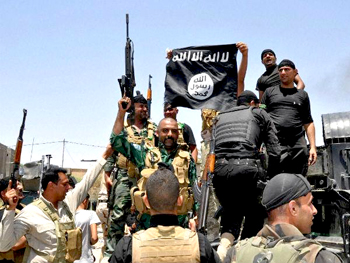Baghdad, Jun 30: Iraqi forces pressed a counter-attack on Saddam Hussein's hometown Tikrit today as jihadists who led a blistering Sunni militant offensive that captured swathes of territory declared a "caliphate".
 Russia meanwhile delivered warplanes to aid Baghdad in a crisis said to rival Iraq's brutal sectarian war of 2006-2007, with more than 1,000 killed and hundreds of thousands displaced in a matter of weeks.
Russia meanwhile delivered warplanes to aid Baghdad in a crisis said to rival Iraq's brutal sectarian war of 2006-2007, with more than 1,000 killed and hundreds of thousands displaced in a matter of weeks.
Alarmed world leaders have urged a speeding up of government formation following April elections, warning the conflict driven by sectarian divides cannot be resolved militarily.
And while beleaguered Prime Minister Nuri al-Maliki has conceded a political solution is necessary to end the crisis, his security spokesman has for days touted the Tikrit operation, which could be crucial not only tactically, but also for morale in the security forces.
"The security forces are advancing from different areas" around Tikrit, Lieutenant General Qassem Atta told reporters. "There are ongoing clashes."
Atta said troops had detonated bombs planted along routes into the city, which militants took more than two weeks ago.
Witnesses reported waves of government air strikes in various areas of central Tikrit and Saddam's palace compound in the city.
The Iraqi forces, according to Atta, are coordinating with recently-arrived US military advisers in "studying important targets".
Maliki's national reconciliation adviser, Amr Khuzaie, told AFP the crisis is even more dangerous than the brutal period of Sunni-Shiite sectarian violence years earlier that left tens of thousands dead.





Comments
Add new comment